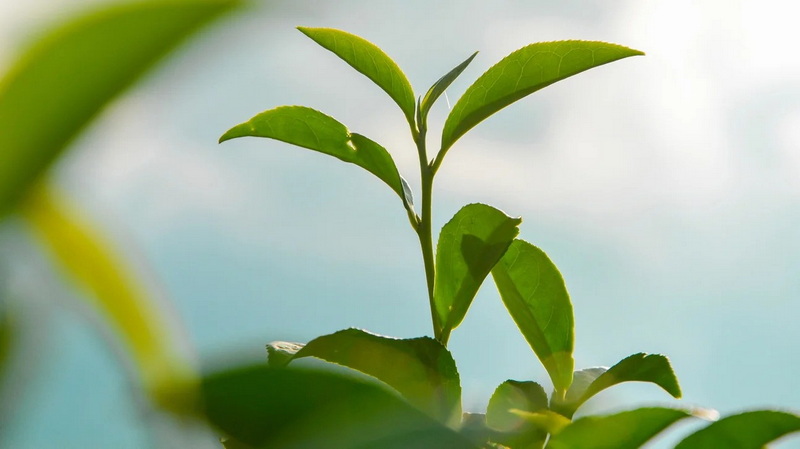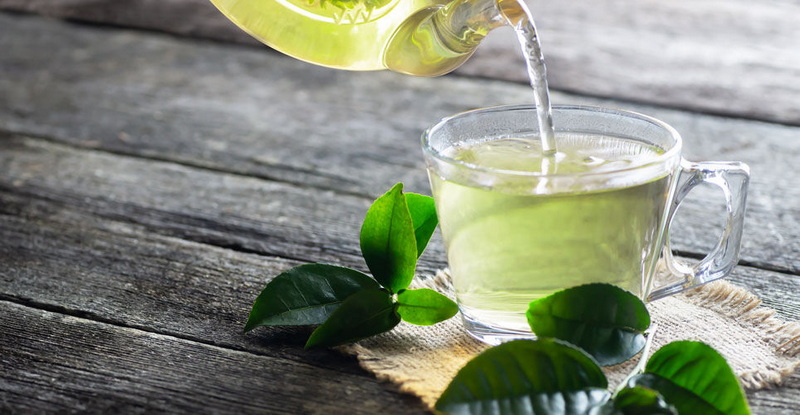Content Menu
● The Components of Green Tea Extract
>> Caffeine Content
>> L-theanine: The Calming Compound
>> Catechins and EGCG
● The Effects of Green Tea Extract on Sleep
>> Stimulating Effects
>> Calming Effects
>> Potential Sleep-Promoting Effects
● Timing and Dosage Considerations
● Other Factors Affecting Sleep
● Potential Benefits of Green Tea Extract
● How to Use Green Tea Extract Effectively
● Potential Side Effects and Precautions
● Conclusion
● Frequently Asked Questions
>> 1. How much caffeine is in green tea extract compared to coffee?
>> 2. Can I take green tea extract before bed to improve sleep quality?
>> 3. Are there any alternatives to green tea extract for improving sleep?
>> 4. How long does the caffeine in green tea extract stay in my system?
>> 5. Can I build a tolerance to the caffeine in green tea extract?
● Citations:
Green tea extract has gained popularity as a health supplement due to its potential benefits for weight loss, cognitive function, and overall well-being. However, many people wonder about its effects on sleep and whether it might interfere with their rest. In this comprehensive article, we'll explore the relationship between green tea extract and sleep, examining its components, effects, and how to use it effectively.

The Components of Green Tea Extract
Green tea extract is derived from the leaves of the Camellia sinensis plant and contains several bioactive compounds that contribute to its health effects. The main components include:
1. Caffeine
2. L-theanine
3. Catechins (particularly EGCG)
Caffeine Content
Caffeine is a well-known stimulant that can affect sleep patterns. Green tea extract typically contains less caffeine than coffee, but the amount can vary depending on the specific product and extraction method. On average, a single dose of green tea extract may contain 15-30 mg of caffeine[1].
L-theanine: The Calming Compound
L-theanine is an amino acid found almost exclusively in tea. It's known for its calming effects and ability to promote relaxation without causing drowsiness. This unique property of L-theanine may help counteract some of the stimulating effects of caffeine[2].
Catechins and EGCG
Catechins, particularly epigallocatechin gallate (EGCG), are powerful antioxidants found in green tea extract. While they don't directly affect sleep, their health benefits may contribute to overall well-being and potentially improve sleep quality indirectly.
The Effects of Green Tea Extract on Sleep
The impact of green tea extract on sleep can be complex due to the interplay between its various components. Let's examine the potential effects:
Stimulating Effects
The caffeine in green tea extract can act as a stimulant, potentially making it harder to fall asleep if consumed close to bedtime. Caffeine works by blocking adenosine receptors in the brain, which are responsible for promoting sleepiness[3].
Calming Effects
L-theanine, on the other hand, has been shown to promote relaxation and reduce stress. Some studies suggest that the combination of caffeine and L-theanine in green tea can provide a state of "alert relaxation," which may not necessarily interfere with sleep if consumed earlier in the day[4].
Potential Sleep-Promoting Effects
Some research indicates that regular consumption of green tea or its extract may have long-term benefits for sleep quality. A study published in the journal Nutrients found that elderly individuals who regularly consumed green tea had better sleep quality compared to non-tea drinkers[5].
Timing and Dosage Considerations
To minimize the potential for sleep disruption, consider the following factors when using green tea extract:
1. Time of consumption: It's generally recommended to avoid consuming green tea extract within 4-6 hours of bedtime to prevent caffeine-induced sleep disturbances.
2. Dosage: Start with a lower dose and gradually increase if needed. Pay attention to how your body responds.
3. Individual sensitivity: Some people are more sensitive to caffeine than others. If you find that green tea extract affects your sleep, consider reducing the dose or consuming it earlier in the day.
4. Product selection: Look for green tea extracts that are standardized for L-theanine content, as this may help balance the effects of caffeine.

Other Factors Affecting Sleep
While considering the effects of green tea extract, it's important to remember that many factors can influence sleep quality:
- Stress levels
- Diet and nutrition
- Exercise habits
- Sleep environment
- Screen time before bed
- Underlying health conditions
Addressing these factors in conjunction with careful use of green tea extract can help optimize your sleep quality
Potential Benefits of Green Tea Extract
Despite concerns about its effects on sleep, green tea extract offers numerous potential health benefits when used appropriately:
1. Antioxidant properties: The high concentration of catechins in green tea extract may help protect cells from damage caused by free radicals[6].
2. Cognitive function: Some studies suggest that the combination of caffeine and L-theanine in green tea extract may improve attention, memory, and reaction time[7].
3. Weight management: Green tea extract has been associated with increased fat oxidation and may support weight loss efforts when combined with a healthy diet and exercise[8].
4. Cardiovascular health: Regular consumption of green tea or its extract has been linked to improved heart health markers, including lower blood pressure and reduced risk of heart disease[9].
5. Neuroprotection: The compounds in green tea extract, particularly EGCG, have shown potential neuroprotective effects in laboratory studies, suggesting possible benefits for brain health.
How to Use Green Tea Extract Effectively
To maximize the benefits of green tea extract while minimizing potential sleep disruptions, consider the following tips:
1. Start with a low dose: Begin with the lowest recommended dose and gradually increase if needed.
2. Take it early in the day: Consume green tea extract in the morning or early afternoon to avoid potential sleep interference.
3. Monitor your response: Pay attention to how your body reacts to green tea extract, including any changes in sleep patterns, energy levels, or mood.
4. Combine with a healthy lifestyle: Green tea extract is not a magic bullet. Combine its use with a balanced diet, regular exercise, and good sleep hygiene practices for optimal results.
5. Choose high-quality products: Look for reputable brands that provide standardized extracts and third-party testing for purity and potency.
Potential Side Effects and Precautions
While green tea extract is generally considered safe for most people, some individuals may experience side effects or should exercise caution:
- Caffeine sensitivity: Those sensitive to caffeine may experience jitters, anxiety, or sleep disturbances.
- Iron absorption: Green tea can interfere with iron absorption. If you have iron-deficiency anemia, consult your healthcare provider.
- Liver concerns: In rare cases, high doses of green tea extract have been associated with liver problems. Stick to recommended dosages and consult a healthcare professional if you have liver issues.
- Interactions with medications: Green tea extract may interact with certain medications, including blood thinners and some psychiatric drugs. Always consult your healthcare provider before starting any new supplement regimen.
Conclusion
Green tea extract can be a valuable addition to a healthy lifestyle, offering potential benefits for cognitive function, weight management, and overall health. While its caffeine content may keep some people awake if consumed too close to bedtime, the presence of L-theanine and other beneficial compounds may help balance its effects.
To minimize the risk of sleep disruption, it's best to consume green tea extract earlier in the day and pay attention to your individual response. By using green tea extract mindfully and in conjunction with good sleep hygiene practices, you can potentially enjoy its benefits without compromising your rest.
Remember that everyone's body responds differently to supplements, and what works for one person may not work for another. If you have concerns about using green tea extract or its effects on your sleep, consult with a healthcare professional for personalized advice.

Frequently Asked Questions
1. How much caffeine is in green tea extract compared to coffee?
Green tea extract typically contains less caffeine than coffee. While a standard cup of coffee may contain 95-200 mg of caffeine, a single dose of green tea extract usually contains 15-30 mg of caffeine. However, the exact amount can vary depending on the specific product and extraction method.
2. Can I take green tea extract before bed to improve sleep quality?
It's generally not recommended to take green tea extract before bed due to its caffeine content. While the L-theanine in green tea extract may have calming effects, the caffeine could potentially interfere with your ability to fall asleep. If you want to use green tea extract for potential sleep benefits, it's best to take it earlier in the day.
3. Are there any alternatives to green tea extract for improving sleep?
Yes, there are several alternatives that may help improve sleep quality without the risk of caffeine-induced wakefulness:
- Chamomile tea
- Valerian root extract
- Magnesium supplements
- Melatonin (under healthcare provider guidance)
- Lavender essential oil
Always consult with a healthcare professional before starting any new supplement regimen.
4. How long does the caffeine in green tea extract stay in my system?
The half-life of caffeine (the time it takes for half of the caffeine to be eliminated from your body) is typically around 5-6 hours. However, this can vary depending on individual factors such as age, body weight, and metabolism. Some people may be more sensitive to caffeine and experience its effects for longer periods.
5. Can I build a tolerance to the caffeine in green tea extract?
Yes, it's possible to build a tolerance to caffeine over time. Regular consumption of caffeinated products, including green tea extract, may lead to a decreased sensitivity to caffeine's effects. However, this tolerance can also be reversed by temporarily reducing or eliminating caffeine intake.
Citations:
[1] https://pmc.ncbi.nlm.nih.gov/articles/PMC9967785/
[2] https://pmc.ncbi.nlm.nih.gov/articles/PMC5537891/
[3] https://pubmed.ncbi.nlm.nih.gov/28899506/
[4] https://www.alamy.com/stock-photo/green-tea-extract.html
[5] https://www.youtube.com/watch?v=mpIJOavyYtQ
[6] https://www.vumc.org/poison-control/toxicology-question-week/march-12-2021-what-are-adverse-effects-green-tea-extract
[7] https://johnshopkinshealthcare.staywellsolutionsonline.com/19,GreenTeaExtract
[8] https://www.zhounutrition.com/blogs/the-greatness-files/green-tea-extract-q-a
[9] https://www.healthline.com/nutrition/green-tea-before-bed






























